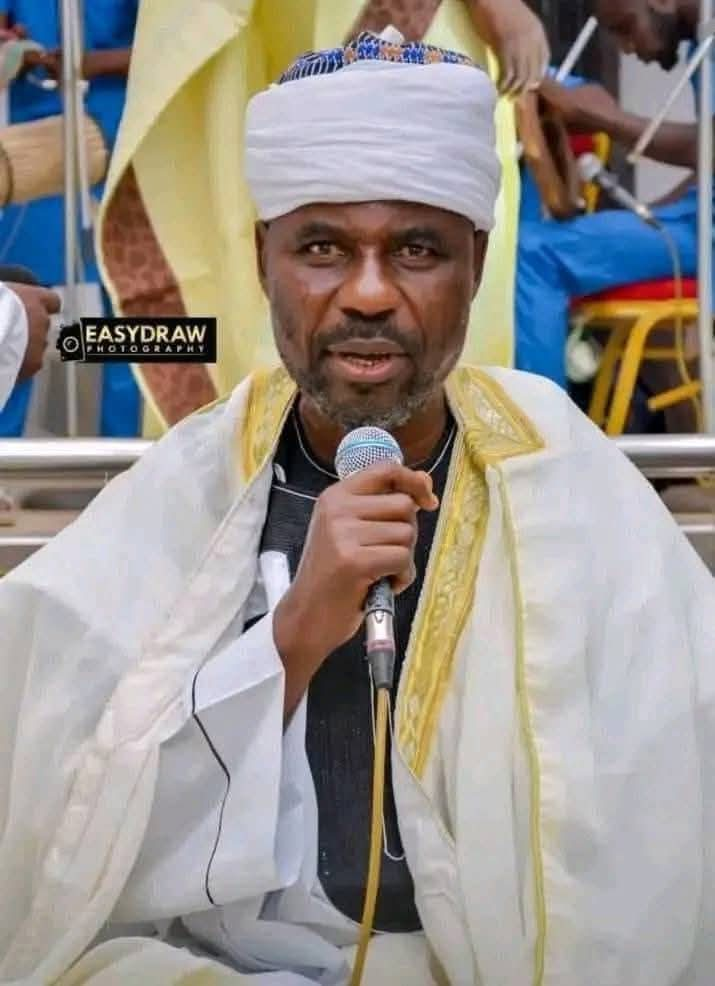Flooding: My 2022 Person of the Year
[ad_1]
The United States of America-based Time Magazine pioneered and popularised the Person of the Year (formerly Man of the Year until 1998) concept. Charles Augustus Lindbergh, a pilot, had at the age of 25, made the first solo non-stop flight across the Atlantic Ocean between May 20 and 21, 1927. Then that was a feat. Although he was not the first person to cross the Atlantic, he was the first to make a non-stop cross of the Atlantic alone. To celebrate his exploit, Time Magazine named him Man of the Year for 1927. Thus began the annual ritual.
But the award is not always a garland on heroes, sometimes villains are decked with it. The Time Magazine’s Person of the Year award is not only bestowed on those who have made positive impact on the society, those who have negatively affected the society have also had the honour of winning the coveted trophy.
In 1938, Adolf Hitler was announced as the magazine’s Man of the Year. This was the same Hitler responsible for the gassing of six million Jews; the same Hitler who plunged the whole world into a needless war because he “wanted to rule the world.”
Rationalising its choice of Hitler, the magazine said that the Man of the Year award would usually go to a man or woman or idea that “for better or for worse most influenced events in the preceding year.”
So, positive contribution is not the sole consideration for voting anyone the Person of the Year, those who have inflicted untold hardship on mankind could also win the coveted prize, though many of the winners have positively affected the way we live. Similarly, there have been years when an inanimate object was picked as the person of the year. In 1982, Time Magazine chose the Computer as its Man of the Year because, according to the magazine, “There are times when the significant force in a year’s news is not a single individual but a process, and a widespread recognition by a whole society that this process is changing the course of all other processes… TIME has decided that 1982 is the year of the computer. … TIME’s Man of the Year for 1982, the greatest influence for good or evil, is not a man at all. It is a machine: the computer.”
The magazine also picked The Earth as its Person of the Year for 2006.
Following the tradition of the Time Magazine, I have decided to pick my 2022 Person of the Year. My choice is flooding.
In 2022, flooding left a tale of woes, anguish and deaths in many homes, communities and at least 31 of Nigeria’s 36 states. It left the people bewildered and the government befuddled. According to official data, over 603 people lost their lives to the floods, over 2,400 people were injured, no fewer than 1.4 million people were displaced, about 82,035 houses were destroyed, while 332,327 hectares of land were affected by the flooding which took place between May and October.
Although the Federal Government, through the Minister of Water Resources, Suleiman Adamu, said heavy rainfall was responsible for the flooding, this is contrary to the position of the National Emergency Management Agency (NEMA) and many Nigerians whose position is that the flooding was exacerbated by the release of excess water from the Lagdo dam in Cameroon.
NEMA had, in September, warned that the excess water to be released from the Lagdo dam would cause heavy flooding in Adamawa, Taraba, Benue, Niger, Nasarawa, Kebbi, Kogi, Edo, Delta, Anambra, Cross River, Rivers and Bayelsa states.
Aside the loss of lives and properties, the flooding disrupted economic activities of the whole nation and contributed immensely to the galloping inflation being experienced currently in the country.
According to a statement by the Nigerian Midstream and Downstream Petroleum Regulatory Authority (NMDPRA) in October on the heels of fuel scarcity which resulted in long queues in Abuja and other parts of the North, unprecedented flooding in Lokoja, Kogi State, which submerged a greater part of the city and grounded all vehicular movements, affected the distribution of petroleum products to the Federal Capital Territory, Abuja and environs.
This lasted for over a month with the effect that motorists who could not afford spending hours on a queue to buy fuel had to resort to black market. Invariably, transporters had to jack up their fares and manufacturers also had to hike their prices.
Similarly, the floods washed away farms. Olam Rice Farm lost over $15 million worth of rice crops as flood submerged its 4,500 hectares in Rukubi Doma Local Government Area of Nasarawa State, according to Anil Nair, the company’s Vice President, in a statement. In the same vein, thousands of rice farmers in five local government areas of Taraba State lost their farms to the floods, according to the Taraba State chairman of the Rice Farmers Association, Tanko Bobbi Andami. This was confirmed by the Commissioner for Agriculture in the state, Dr David Ishaya, who described the flooding as a national disaster. The pattern is not different in Jigawa, Kano, Benue, Niger, Kogi and Kebbi where thousands of hectares of rice farms were lost the floods. Apart from rice farmers, so many other farmers had their investments wiped away by the floods.
The effect of the flooding on food prices began to manifest in October as the National Bureau of Statistics (NBS) in its consumer price index (CPI) report for that month showed that the rise in headline inflation rate for that month was partly fueled by surging food prices. Food inflation rate in October 2022 rose to 23.72 percent on annual basis, which was 5.39 percent higher compared to the 18.34 percent rate recorded in October 2021. According to the World Bank in its Nigeria Development Update released penultimate week, the rate of consumer price inflation in Nigeria is one of the highest globally. The bank added that inflation is partly responsible for pushing five million more Nigerians into poverty.
So, the casualties of the 2022 flooding are not just those who lost their lives, homes, farms, businesses or loved ones, every Nigerian, one way or the other, was a victim of the deluge.
For blighting the lives of Nigerians, flooding has been voted my 2022 Person of the Year.
This is hoping that the appropriate authorities will begin to take steps to guard against the recurrence of excessive flooding in 2023.
Wishing you and yours an amazing 2023.
The Central Bank of Nigeria (CBN) has released security features to help identify fake new naira notes. According to CBN’s template, the Security features to look out for are the following…
LOCAL government workers under the aegis of Nigeria Union of Local Government Employees (NULGE), Ondo, on Tuesday, stormed the State House of Assembly, threatening a showdown with the lawmakers over the signing of local government autonomy…
The Federal Government is putting the final touches to all necessary measures to stop cash withdrawal from federal, state, and local government accounts. The Director/Chief Executive Officer of the Nigerian Financial Intelligence Unit (NFIU), Modibbo Hamman Tukur, revealed…
The House of Representatives on Tuesday unveiled plans to investigate the allegation bothering on the alleged loss of over $2.4 billion in revenue accruing from the illegal sale of 48 million barrels of crude oil export from 2014 till date…
LEADING rights lawyer, Mr. Femi Falana, on Tuesday addressed the controversial move by the nation’s secret police to arrest and detain the embattled Governor of the Central Bank of Nigeria (CBN), Godwin Emefiele…
As a follow-up to its redesign of the N200, N500, and N1000 banknotes, the Central Bank of Nigeria (CBN) recently announced a new policy that mandates deposit money banks and other financial institutions to ensure that…
[ad_2]














Post Comment